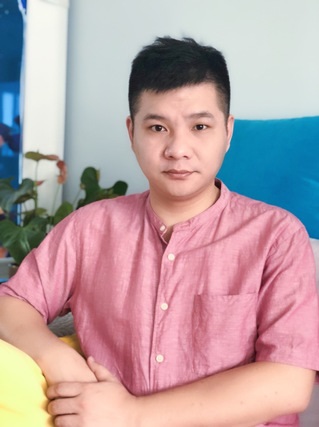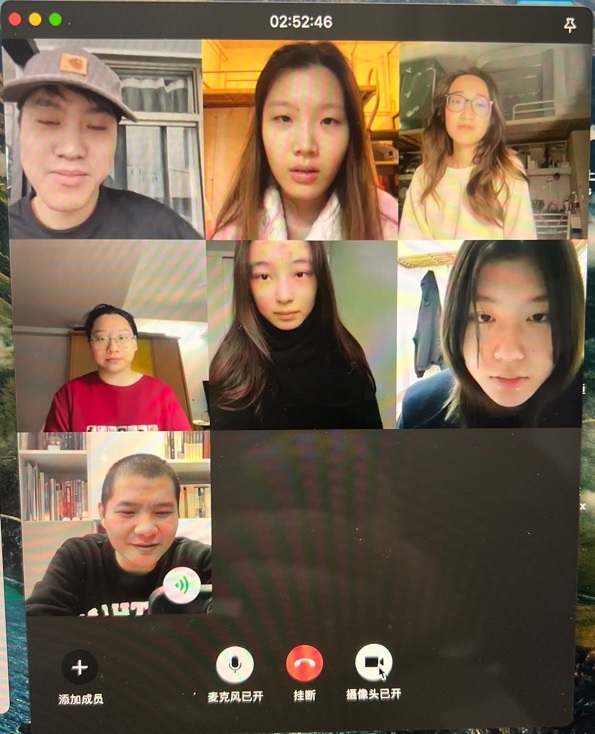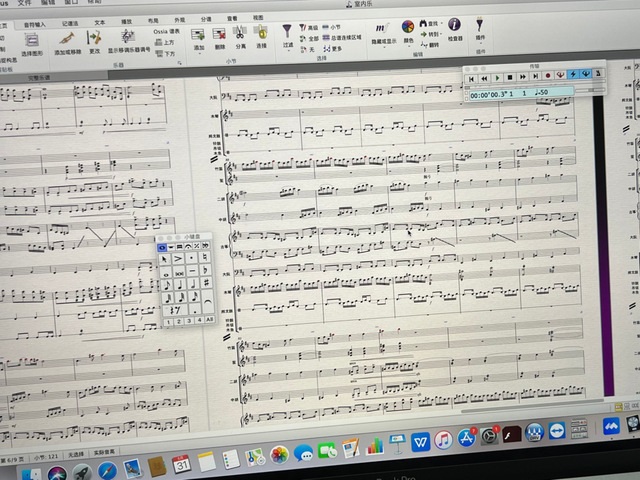In the special period of the COVID pandemic, online teaching and learning have once again become the daily mode of teachers and students. The online classrooms are still full of "wisdom" and "warmth". All the teachers of the Film College actively participate in online teaching, reasonably adjust the teaching content, adapt to online teaching, and timely integrate the ideological and political education into each class in a natural and soft manner. The Film College will share its teachers' online teaching practices and cases from time to time, hoping to provide useful experience, promote the high-quality development of the courses, and provide reference for the experience of course-based ideological and political education in the entire university.
Course Name: Composition
Teacher’s Profile:
Huang Lei, composition expert, music producer, PhD, leader of China National Arts Fund project, is currently director of the Composition and Theory of Composition Technology major at the Shanghai Theatre Academy. For a long time, he has been committed to the creation and research of contemporary music based on Chinese traditional culture, and the exploration of new music language that crosses over multiple fields and styles. His works involve art, application, popular music, national music and multimedia. In recent years, he has served as the composer, music creator and project leader of major art festivals, art creation, films, musicals, dramas, games and music albums at home and abroad.

Course Design:
"Composition" is one of the major courses of the Composition and Theory of Composition Technology major, which is a compound and diverse subject. Students need to integrate, assemble and creatively arrange and use the materials under the condition of skillfully mastering the four major techniques of harmony, polyphony, music form, orchestration and composition.

When the online teaching began, corresponding to the teaching content of "National Chamber Music Writing" for the semester, the teacher for this course integrated the content of ideological and political education into daily teaching, which emphasized on national self-confidence and cultural self-confidence, and taught students to adhere to and spread the aspiration of inheriting and expanding the Chinese culture with the persistence in and the innovation of national music creation.

The teacher for this course took full advantage of the online teaching mode and adopted the combination of large classes and small classes in the delivery of the course. While explaining the requirements and skills of national music writing, the teacher also put forward suggestions for the works of each student, which not only took into account the personalized development of the student concerned, but also enabled other students to learn from listening to the feedbacks provided for their classmates, thus greatly increasing the gains of all students from taking the classes. In the spare time, the teacher would share videos about the acoustic characteristics of national musical instruments in the Wechat group set up for the course, so as to strengthen the students' understanding and application of the characteristics of national musical instruments, and make the teaching permeate into daily life, thus inspiring students' thinking and observation, and enhancing their creative thinking.
Course Name: Modern Music
Teacher’s Profile:
Zhang Zhimin, associate professor at the Film College of Shanghai Theatre Academy. She has published more than ten papers in CSSCI journals and other important domestic journals. She was the project leaders for a number of research and innovation projects at the Shanghai Municipality and the Shanghai Theatre Academy levels in 2012 and 2019. As a key member, she participated in the 2020 Shanghai Art Science Planning Project, "Studies on Music Narrative in Dance Drama" and the 2019 Shanghai Cultural development Foundation Stage Art Creation and Performance Project, "Follow the Road".

Course Design:
As a course of music history, “Modern Music” is a comprehensive course integrating a number of subjects including music history, humanities, politics, geography, art, religion etc. It briefly describes the development schools and forms of music after the 20th century, such as music trends, composition styles, music techniques and expression methods.
The content of the course is based on the development history of western music, especially the evolution of music styles in various periods and their deep cultural and historical root causes. Through the study of this course, students can realize and understand the process and achievements of the historical development of western music culture, master its overview and development clues, and understand the lives and achievements of musicians in various periods, important music events, genre forms of music and style characteristics of music, so as to expand students' horizons for music and improve their artistic attainment for music. The course enables students to learn and study the evolution of music styles in various periods and its deep cultural and historical root causes by using the viewpoints and methods of historical materialism and reconciliation materialism, so as to correctly learn from the excellent achievements and advanced creative methods of western music art, and enhance and promote the development of Chinese music culture on the basis of inheriting the national music tradition.
After the online teaching began, aiming at the concept of the course which is to combine learning and appreciation, the internet was fully used as the medium to link up Chaoxing and Tencent Meeting, using MOOC materials, documents, audio files and music scores on Chaoxing as the main teaching method, which was supplemented by after-class exercises to consolidate the knowledge points. At the same time, the theory of "Feynman Learning Method" was incorporated in the course design, by which teaching after students' self-learning was used as an auxiliary way to enhance students' sense of participation in the course.



